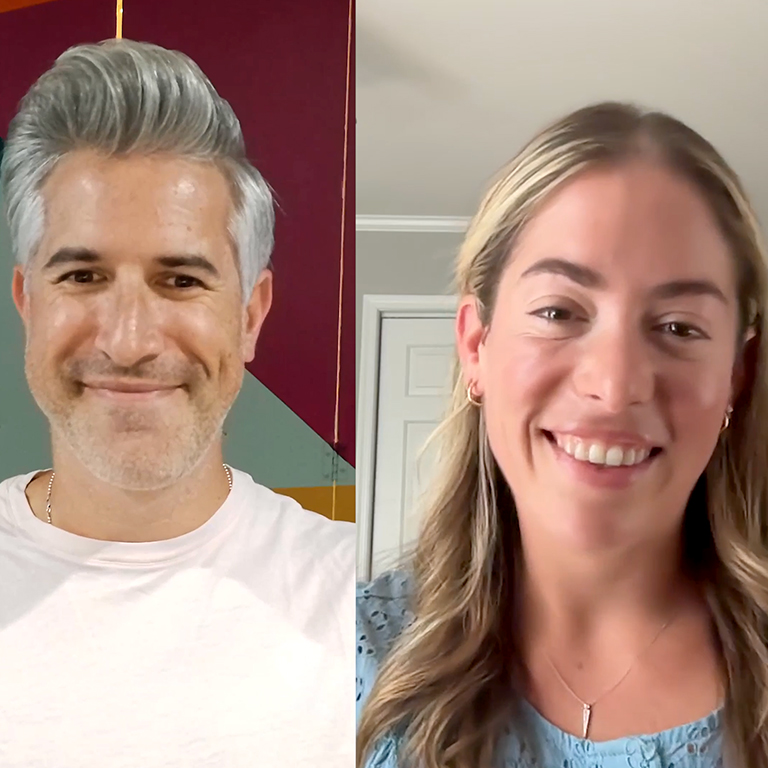
At the beginning of this year, the markets were at all-time highs. Now we’re experiencing a market downturn, inflation is at its highest in 40 years, and interest rates are rising. But it may not be time to hit the panic button quite yet.
On the latest episode of Common Cents on the Prairie™, Investments Manager Kyle Cipperley and I outline four strategies to help you navigate this downturn — and maybe even take advantage of it.
You can read a recap of their conversation below, watch the full episode on YouTube, or listen on your favorite podcast app!
4 strategies for navigating a market downturn
Adam: We’re recording this episode in late June 2022, and the markets are down a fair bit from late last year into the early part of this year — when they were at all-time highs. Kyle, tell us what’s been going on in the markets.
Kyle: Since the beginning of this year, inflation has picked up. It’s as high as it’s been in about 40 years. What’s happening as a result of that is interest rates are starting to go up too, and that has cascading effects in the market. It causes things like mortgage rates and borrowing costs to go up, and it leads investors to reassess their stock portfolios.
So, stocks have gone down quite a bit. The S&P 500 Index is down roughly 20%. But what’s unusual about this period is bonds are also down, so they’re not really serving as a good diversifier for that.
Adam: What has that meant for the average investor’s portfolio?
Kyle: The average investor maybe has 60% of their portfolio in stocks and 40% in bonds and cash. Their stock portfolio is down maybe 20%, and their bonds are probably down five to 10%.
Adam: How often do downturns like this occur?
Kyle: The stock market has a negative return in about three in every 10 years. But in any given year, the average drawdown can be about 14%.
Adam: But there are things we can do to protect ourselves during market downturns. So, we’re going to talk through some of those.
The first strategy is to ignore the noise. The news, social media, and — maybe even the worst — the financial media are just trying to get our attention, because attention equals money. The best thing we can do is take it all with a grain of salt.
The second strategy is to take advantage of opportunities. So, market downturns — while painful — do provide investors with some unique opportunities. The first is to rebalance our portfolios.  Why is that important?
Why is that important?
Kyle: It’s really important to have targets of how much of your portfolio you want to have in stocks, bonds, and cash, and rebalancing is just the act of getting back to those targets.
Adam: The second opportunity is that we’re able to harvest losses in our portfolio. Why is that important?
Kyle: Tax loss harvesting means selling investments that have a loss, capturing that loss, and then buying something similar to what you just sold. And the reason for that is so you can use that loss to offset capital gains you might have elsewhere in your portfolio or some of your ordinary income during tax season.
Adam: The third opportunity is for people who are buying into a market when it’s down. Why should some people actually be excited when the market pulls back like this?
Kyle: If you’re a net buyer of stocks — like someone making a 401k contribution with every paycheck — you’re better off if the prices go down. You’re getting more for your money. And if you’re young or not near retirement, you should actually want prices to go down because you can invest your money for cheaper.
Adam: The third strategy is to trust your plan. The single-most effective way to keep your cool in a market downturn is to have a financial plan that you know and trust.
Kyle: When markets go down, the first instinct is to do something about it. But usually, the best course of action is to do nothing.
I’m thinking of a client that passed away at 105 years old. She held stock in a railroad company that I always joked, “She held since they laid the tracks.” Think about all the reasons she had to sell that stock during her life: wars, terrorist attacks, pandemics, etc. But in the end, the right thing to do was just hold on, and she did extremely well.
Adam: The fourth and final strategy is to prepare for the next downturn today. Because as long as we’re alive and investing, there will be another downturn. So, there are things we can do to better prepare. The first one: have sufficient cash reserves. Kyle, how much cash should people have?

Kyle: You don’t want to have any money invested in stocks that you might need in the short term. Basically, you want to have enough cash around so you don’t have to sell your investments. But, generally, three months to a year.
Adam: The second way to prepare for the next downturn is to automate your investments, and the third thing we can do is have more financial cushion.
Kyle: One of those things that’s simple but not easy is to spend less than you make. The only way to get ahead in life financially is to save money. You should really try to be saving at least 10% of your salary every year. You don’t want to have every dollar accounted for in terms of debt payments or spending because, if tough times do come along, you want to have that cash saved up that we talked about earlier.
Hopefully, you’re ready to navigate this market downturn now, but if you’d like some extra help from an advisor, send us a note.




